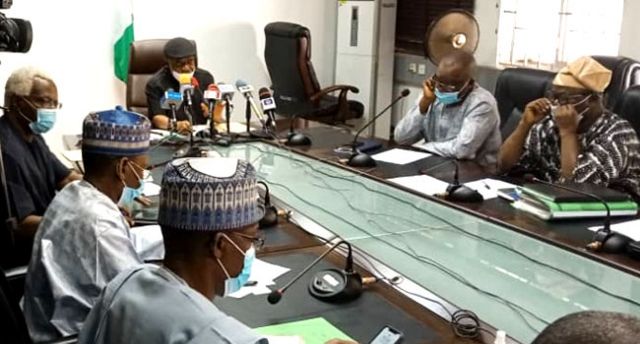To prevent the teaching profession from going into extinction in Nigeria, the management of the University of Ilesa, Ilesa, Osun State has declared its undergraduate Education programmes tuition-free to boost enrollment.
The Vice-Chancellor of the University, Prof. Taiwo Olufemi Asaolu, disclosed that enrollment into Education courses has been very poor, stressing the need to revive the critical sector from total collapse.
He also revealed how the authority is striving to ensure that students of the institution make a difference in the larger society by driving expected changes and contributing to feeding the populace.
Asaolu disclosed that the University commissioned the Model Integrated Teaching and Research Farm where students are equipped and trained on livestock management and other agricultural programmes, stressing that no student of the institution would graduate without participating in the entrepreneurship development for the better good of themselves and their extended societies.
He made this known on Monday during a media engagement on how far the school has fared in the last 18 months of its official take-off on the campus.
The VC who reeled out the giant strides of the state-owned institution, disclosed that the National University Commission (NUC) has so far approved a total of 67 courses for the university including Law, Nursing, Physiotherapy, Anatomy among others.
With over 2,000 current students, the pioneer VC said the institution has experienced industrial peace and harmony since its establishment and commencement, commending the state governor, Ademola Adeleke for funding the university and prioritising the welfare of staff.
Asaolu disclosed that Governor Adeleke has approved the engagement of 230 temporary staff inherited from the defunct College of Education on permanent basis in the University.
He explained that the Nigerian Education Loan Fund (NELFund) credited the University’s account with a sum of Ninety-Eight Million, Eight Hundred and Seventy One Thousand, Five Hundred Naira (N98,871,500:00) only as loan disbursement to 247 students of the University and lauded the state governor for encouraging tertiary institutions in Osun State to key into the programme.
“The University, on its part, has also approved tuition scholarship for students studying programmes in the Faculty of Education in the University to encourage increase in enrolment of candidates for the different programmes in education and to prevent the teaching profession from going into extinction. This decision is in conformity with Governor Adeleke’s integral action plan.
“The University doesn’t want the teaching profession to go into extinction. Mind you, this University has offshoot from a College of Education, it is disheartening if courses like Nursing will be recording 150 enrollments, Public Health, 200, and a course like Adult Education will have zero or one.
Not so impressive outing for education and we have the chore of our lecturers in the Faculty of Education and we do not have students for them to teach. So, if you do the cost benefit analysis, it is even better for us to make education tuition free so that the teaching profession will not go into extinction. And at any rate, it goes a long with the vision of Mr Governor.
However, it is just the tuition aspect of the regime of fees which students are expected to pay that is free. When you say free tuition and the student wants to stay in hostel, will the student not pay accomodation, he will pay for sports facilities, and things like that. But tuition from part one to four is free.
While identifying funding as major challenge confronting the institution, Asaolu stated, “Our challenges include lack of perimeter fencing, encroachment by herdsmen, mining on the school land, but the most serious among them is the issue of funding. The governor has been trying, has it not been for the governor, the university would not have made any serious progress.”
He announced that fresh students for the 2024/2025 academic session will resume on 4th November, 2024 while returning students will resume on 11th November, 2024.

 Education4 weeks ago
Education4 weeks ago
 News3 weeks ago
News3 weeks ago
 Business3 weeks ago
Business3 weeks ago
 Technology3 weeks ago
Technology3 weeks ago
 Investment4 weeks ago
Investment4 weeks ago
 Investment3 weeks ago
Investment3 weeks ago
 Telecommunications4 weeks ago
Telecommunications4 weeks ago
 Banking Sector3 weeks ago
Banking Sector3 weeks ago




























